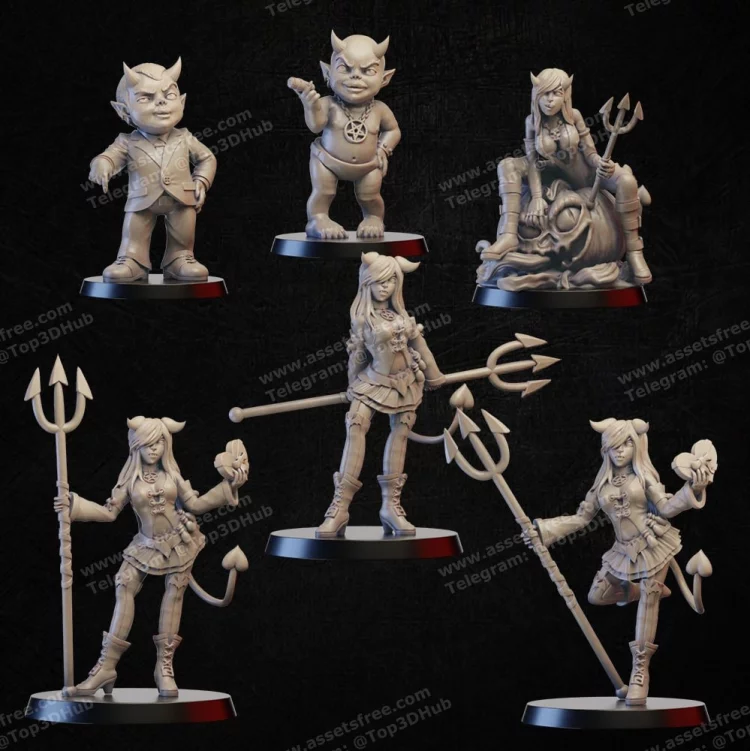Demons
Demons — 3D print model STL
3D Print File Format: STL
The term «demons» has been used in various cultures and religious traditions throughout history to refer to supernatural entities or malevolent spirits. The concept of demons varies widely, depending on the cultural and religious context. Here are some general points about demons:
1. **Religious and Mythological Context:** Demons are often associated with religious and mythological beliefs. In many religious traditions, they are considered evil or malevolent beings opposed to divine or benevolent forces.
2. **Abrahamic Religions:** In Christianity, Islam, and Judaism, demons are typically regarded as fallen angels or rebellious spirits who oppose God’s will. In these traditions, demons are often associated with temptation, sin, and spiritual corruption. Prominent demons in these religions include Satan (or the Devil) and various demonic entities mentioned in religious texts.
3. **Exorcism:** The practice of exorcism involves the ritualistic removal or expulsion of demons or evil spirits from a person or place. Exorcism is most commonly associated with Christianity but exists in other cultures and religions as well.
4. **Folklore and Mythology:** Many cultures have their own folklore and mythology related to demons and malevolent supernatural beings. These beings often have specific characteristics, powers, and roles in local stories and legends.
5. **Dualism:** Some belief systems, such as Zoroastrianism, have a dualistic worldview that posits a cosmic struggle between good and evil forces, with demons representing the evil side of this dualism.
6. **Pop Culture:** Demons have also been popularized in literature, film, television, and video games, often as antagonistic or sinister characters. These representations can vary widely and may not necessarily align with traditional religious or mythological beliefs.
7. **Psychological Interpretations:** Some modern scholars and psychologists interpret the concept of demons as symbolic representations of inner psychological conflicts, fears, or mental disorders. In this view, «demon possession» may be seen as a metaphor for mental illness.
8. **Cultural Diversity:** It’s important to note that the concept of demons and malevolent spirits varies greatly from culture to culture. What is considered a demon in one tradition may have a completely different interpretation or meaning in another.
Overall, the concept of demons is complex and multifaceted, and interpretations can differ significantly depending on one’s cultural, religious, or philosophical perspective. Demons continue to play a role in the collective human imagination and storytelling, both in religious contexts and in popular culture.

